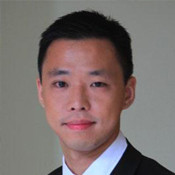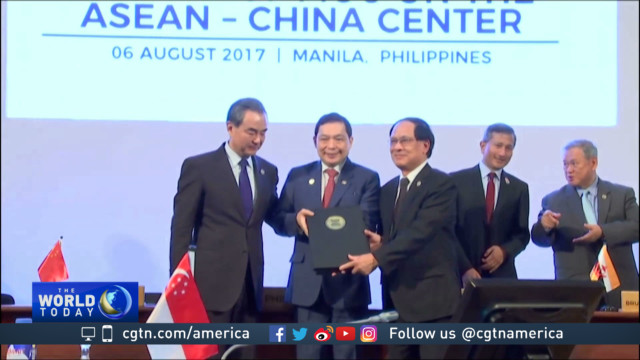Foreign Ministers from around the world are meeting at the ASEAN forum in Manila. Pyongyang’s nuclear and missile threats have dominated the gathering’s agenda, but progress in the South China Sea disputes is also being discussed.
CGTN’s Barnaby Lo reports.
In what Chinese Foreign Minister Wang Yi describes as a positive development, China and other ASEAN states have adopted a framework for a code of conduct in the South China Sea. The framework comes after a decade and a half of negotiations filled with territorial disputes.
“We’ve noted reports of differences within the regional bloc, but based on my meeting with the 10 foreign ministers, I felt that they all showed positive attitudes toward the South China Sea issue,” Wang said. “They recognized the valuable progress we’ve made over the past year and the need to cherish the momentum. With tangible progress made on the South China Sea issue, this year’s meeting felt very different from last year’s.”
As the region makes progress on one front, however, it is confronting rising tensions in another. On Monday, all eyes will be on a meeting that will bring together the foreign ministers of 26 countries – including the U.S., Japan, and the Republic of Korea – and the Democratic People’s Republic of Korea.
Ahead of the regional security forum, the UN Security Council imposed sanctions that could prevent the DPRK from exporting $1 billion worth of seafood and minerals. The measures are meant to push the DPRK into returning to denuclearization talks, but after a one-on-one meeting with DPRK Foreign Minister Ri on Sunday, Chinese Foreign Minister Wang Yi acknowledged that the work ahead will be tough.
“It’s not that easy to resume the six-party talks, but it is a direction that we need to work towards together. Dialogue and negotiation are the only right way to solve the nuclear issue on the Korean peninsula,” Wang said.
The foreign minister also said the meeting will allow the DPRK to hear directly from other countries, in what could be a productive opportunity for everyone involved.
Myung-Koo Kang, Professor of Political Science at Baruch College joined CGTN’s Wang Guan to discuss U.N. sanctions and the messages being sent to the DPRK from other countries.
 CGTN America
CGTN America

